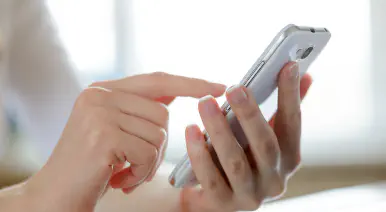Value in Surveys: Study Reveals That We Can Survey Anything
The value of survey research cuts across all industries and disciplines. It’s a tool for collecting information that can improve customer satisfaction, offer insight into a company product, pinpoint the mood of the voter and gauge public opinion on social issues. But definitive research for business or mainstream purposes isn’t the only use for surveys. Occasionally, surveys can come up with some, shall we say, unique results.
A recent survey conducted by Canadian researches sparked interest here at NBRI in some of the more off-beat surveys. The survey was timed to correspond with something called “Blue Monday,” which occurs on January 19. The origin of the day started as part of a publicity campaign by Sky Travel, and with some loosely based science, they claimed that the combination of cold weather, broken New Year’s resolutions, and an onslaught of Christmas bills created the perfect storm for this “Blue Monday.”
In the case of the Blue Monday survey, it was tied more to the theme than the survey itself, which was essentially a job satisfaction survey of Canadian workers. The Blue Monday survey set off a search by this writer for five of the most strange and kooky surveys recently conducted.
The Gender Diet
Watching your weight and planning to conceive anytime soon? Then you better plan on lots of pink for your new baby.
Last spring, British scientists concluded that women who skip breakfast or are on low-calorie diets at the time of conception are more likely to give birth to girls than boys. So, if you want a baby girl, better cut out the Frosted Flakes and Pop Tarts from your morning meal.
The research by the universities of Exeter and Oxford – which tells you right away that this survey is actually serious – provided evidence that a child’s sex is associated with the mother’s diet. According to the report, there has been a small but consistent decline, of about one per 1,000 births annually, in the proportion of boys being born in industrialized countries over the past 40 years. In humans, skipping breakfast may tell the body that food availability is low and depresses levels of blood sugar.
Researchers studied 740 first-time pregnant mothers in Britain and found 56 percent of those in the group with the highest energy intake at conception had sons, compared with 45 percent in the lowest group. Oh, baby!
Survey Says … We’re All a Little Nuts
As if we all didn’t have enough issues, it seems paranoia may not be reserved for just schizophrenics, but for about a quarter of us. … Who said that!?
According to British psychologist Daniel Freeman, one in four Londoners regularly has paranoid thoughts. Maybe they think someone is trying to kill them when they choke down Shepherd’s Pie?
Freeman, a paranoia expert at the Institute of Psychiatry at King’s College, concluded that one in four people riding the subway in the capital probably have regular thoughts that qualify as paranoia. In the study, 200 randomly selected people took a virtual reality train ride. Freeman’s small study is just one of many recent surveys that have found paranoia slowly rising in Britain, the U.S., and elsewhere.
Experts say having paranoid thoughts doesn’t necessarily mean you need to run down to your local psychiatrist. It just depends on how disturbing the thoughts are and if they disrupt your life, or someone else’s. Wheeew!
Please, Answer That Email and Leave the Seat Down
Some survey researchers will do anything and go anywhere to conduct a survey, even the bathroom. According to American Standard’s Bathroom Habits Survey, today’s bathroom users are making the most of their daily visits by multitasking.
That may bring up some unpleasant thoughts, but researchers found that consumers are checking e-mail, talking on the phone, or listening to music, um, taking care of business.
The survey revealed that 88 percent use at least one electronic device in the bathroom. More than one-third read either their mail or e-mail; 43 percent get dressed; 20 percent sing; 19 percent listen to music; 15 percent talk on the phone, and three percent watch TV.
Put a small refrigerator in the bathroom and some folks might never leave.
I Now Pronounce You, Husband and Cell Phone
We’ll take our cell phones just about anywhere, as evidenced by the previous survey, and some of us consider them not just tech tools, but close, personal friends.
A recent survey commissioned by Microsoft asked consumers across Australia, China, India, Japan, and Taiwan how integral the cell phone has become in their lives. It may have become a little too integral.
The survey found that 24 percent of men and 11 percent of women believe it is acceptable to propose to their partner using their cell phone, which probably resulted in this conversation:
Man: I just wanted to say, will you marry me?
Woman: (Silence)
Man: Hello?
Woman: I’m sorry, you cut out. … Can you hear me now?
Man: Hello?
The survey also found that married women were more likely to check their partner’s phones than married men. Frankly, any man who proposes over his cell phone from the bathroom deserves to be under constant surveillance.
Working Overtime? Hardly
If you’re reading this, you may be wasting time at work right now, cutting into the company’s time and bottom line. But don’t let that stop you, everyone does it.
Most American workers, according to a recent survey, spend roughly two hours per eight-hour workday doing something other than work. The biggest culprit? Well, the Internet, of course.
In a poll of more than 10,000 people, 44 percent cited surfing the Web as their No. 1 distraction, followed by socializing with coworkers (23 percent), and conducting personal business (7 percent). Some of the smaller percentage activities included spacing out, leaving early, and applying for other jobs. One wonders, though, if you can get paid for surfing the Internet all day, spacing out, and leaving early, why would you want to apply for another job?
Shawn Devlin
Marketing Analyst
National Business Research Institute




























 By submitting this form you agree to our
By submitting this form you agree to our